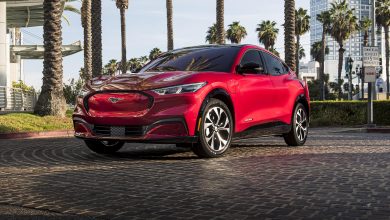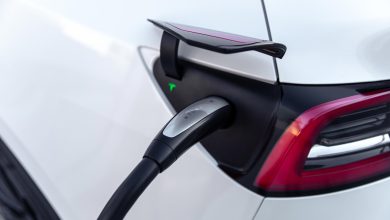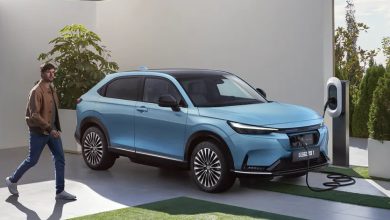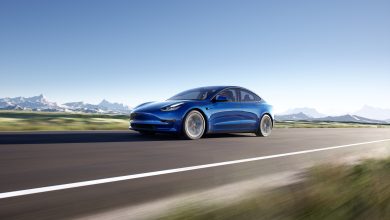Electric cars vs. fuel cars: Cost and feature comparison
EV NewsLooking at the advantages EVs have over internal combustion cars
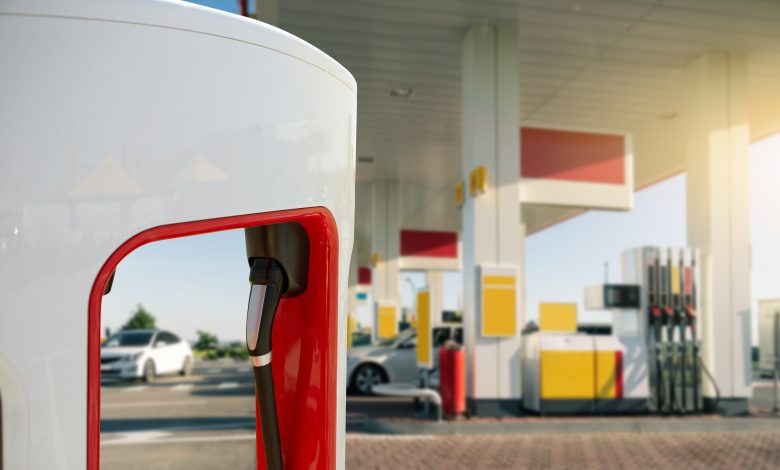
Consumer electric vehicles are here, and they are here to stay. Most people have already shifted to electric vehicles as their primary choice. In contrast, the rest are still confused about whether to make the transition or not. The biggest concern of such users is the fuel cost and the features of the electric cars and whether these are comparable to fuel cars or not. In this article, we break down all the aspects of electric vehicles, including their fuel cost and features, and compare them side by side with fuel cars to make the decision easier for most consumers.
Purchase price:
Currently, people are buying fuel cars more than electric cars. Even though the sales of consumer electric vehicles have doubled in the previous year, they are still less than the total sales of fuel-driven cars. One of the reasons is the purchase price. Fuel-driven consumer vehicles cost less than consumer electric vehicles. There is a difference of $5000-$10,000 on average. The main reason why electric cars are a bit on the expensive side lies in the battery installed in them. In 2010, when electric cars were in the initial stages of experimentation, the battery cost around $600+ for each kWh. Still, as the technology advanced, the costs have been dropping, and right now, the cost lies at about $100 for each kWh, and it is expected to decrease further. After that, the purchase price will no longer be a demerit for electric consumer cars.

Fuel/charging cost:
This aspect is the most significant difference between both consumer vehicles. Fuel-driven cars make use of gasoline, which undergoes combustion in the engine and emits harmful gases. In contrast, electric vehicles run on batteries that do not require gasoline and do not emit toxic gases. Now, some people would think here that charging their car would cost more than getting it filled with gasoline. However, it is quite the opposite. In 2018, Transport Research Institute from Michigan University conducted research in which they found out that the average cost of operating an EV is almost half as compared to that of driving a fuel-driven car—operating an EV costs around $485, while it costs around $1,117 to operate a fuel-based vehicle.
This, however, is not an absolute value. The exact difference in price depends upon which car you are driving and the difference in gas and electricity rates in your area. Some states in the US have provided subsidies on electric cars and their charging, so residents of such states can use these subsidies to their advantage. It would further cut down the fuel cost of electric vehicles.
Different electric cars also have different efficiencies. Efficiency means the number of kWh an electric car consumes for 100 miles. Tesla Model 3 can cover 100 miles in 25kWh, whereas some other EVs, i.e., Chevrolet bolt EUV, cover 100 miles in 29 kWh.
Maintenance cost:
People often miss the maintenance cost when deciding to buy a fuel or electric car. These might seem negligible alone, but over time they stack up to a significant total. The main component that needs regular maintenance is the engine. Due to continuous combustion, it is subjected to wear and tear, so the considerable maintenance cost goes toward keeping the engine running smoothly. The point to note here is that electric vehicles do not have any engines. Therefore, they do not need maintenance in terms of the engine. These vehicles have electric batteries which power them. Thus, the principal maintenance cost can only be the replacement of the battery, but the good thing here is that many car companies provide exchange warranties for the batteries installed in the cars. If your car comes under such coverage, then you need not worry about spending extra money on the maintenance of your car.
Federal Tax Credit:
The major perk that only EV users can enjoy is the federal tax credit. Apart from the closing purchase cost gap due to cheaper batteries, the US government has decided to provide purchase incentives to attract more people to buy consumer electric vehicles. They are offering a price cut of $7,500 on some vehicles. Recently, they have updated the terms for vehicles that can qualify for the tax credit. According to the latest guidelines, the vehicle should be assembled in North America, and the battery components should also be mined from the US territory. This has motivated more companies to invest in the US, and soon consumers will see many available options in the market, encouraging them to choose EVs over fuel vehicles. Companies such as Ford, Toyota, GM, and Tesla are already working hard to ensure that their vehicles qualify for the tax credit.
Charging flexibility:
Fuel vehicles do not provide much refill flexibility. You have to wait at the fuel stations to get your car refilled, and there is no way that the car will get refilled while just being parked in the home. This is possible with consumer electric vehicles. Car manufacturers are now providing the facility of home-based chargers to users. Using this facility, people can install EV chargers in their homes. This lets them charge the car when it is parked and gives them more flexibility and freedom for charging the car. They can charge it whenever they need or desire. They do not have to worry about the long queues or get out of their sofas and drive the car to the nearest station. Instead, they can use the electricity in their home to charge the car, and the cost would just be added to their domestic electricity bill.
Which is cheaper in the long run:
You will have to do some math before you finally arrive at a conclusion about whether an EV is better than a fuel car in terms of cost or not. Well, let us make the decision easier for you. Studies have already tried to analyze the lifetime cost of running a fuel car vs. an electric car, and the results are pretty much as expected. We can consider the 2020 Consumer Reports study a guideline in this situation. The study compared three fuel-based vehicles, the top-rated, most efficient, and best-selling fuel vehicles, to the nine most popular consumer EVs. The study found that the lifetime ownership cost of an EV is thousands of dollars less than that of a fuel-based vehicle.
Other benefits:
Fuel and maintenance costs are just one aspect that people consider while buying cars. They keep many other factors in mind before making the final decision to purchase any car. Some of the points discussed below could help more people shift towards EVs.

Environment friendly:
The world is shifting towards EVs due to their environment-friendly nature. Unlike fuel cars, there are no carbon emissions from consumer electric vehicles. Since there is no combustion going on inside the engine, there is no production of gases. And this is also the main reason why governments are offering incentives to motivate people to shift toward electric vehicles. Apart from air pollution, there is also no sound pollution. The main cause of sound from the fuel vehicles is also the combustion going on inside the engine.
Therefore, some people might take time to adjust to electric vehicles because there is virtually no voice, even at starting the car. There is only an on/off button. Pressing the button starts the car, and you are ready to go.
Instant torque:
Torque is what pushes you against the seat when the car accelerates. Electric vehicles generally provide more torque than fuel-driven vehicles. Turning the car on also immediately switches the engine on, and energy is available for the car to accelerate. At the same time, fuel vehicles take time for the engine to heat up. This provides some latency in the acceleration. People fond of experiencing that adrenaline rush associated with acceleration should definitely prefer electric vehicles over fuel-driven ones.
Easier to drive:
Electric vehicles are much easier to drive as compared to fuel vehicles. Instead of winding the key, the car starts with just an on/off button. Secondly, the acceleration and transmission are much easier to handle. Most electric vehicles come with an automatic transmission, and this takes one more thing off your list to worry about. Secondly, the driving experience is relatively peaceful and enjoyable, provided the fact there is virtually no sound associated with electric vehicles. Moreover, the option of autonomous driving has caused many people to shift toward electric vehicles. Specifically, people who travel mainly on the highways have decided to shift towards electric vehicles due to the autonomous driving option. Moreover, there are a lot of safety features inside electric vehicles in the shape of emergency braking and pre and post-collision braking.
Conclusion:
Electric vehicles are catching the market by storm, and more and more people are investing in them. Moreover, their benefits outweigh their demerits, and as the technology progresses, their maintenance costs and fuel expenses are going to come further down. Couple that with the federal tax credit, and EVs are the best option that you have got out there.

